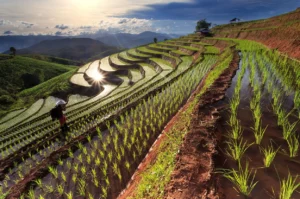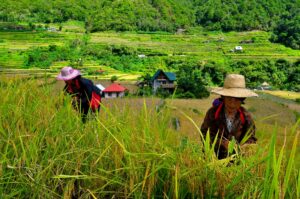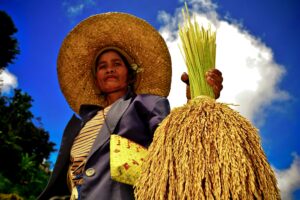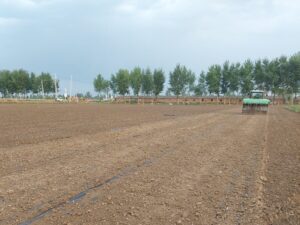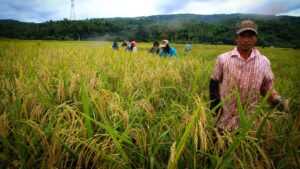
As if rice farming weren’t hard enough. It is patently clear now that humans have gone and made it a whole lot harder. And, in a cruel irony, while the rich, developed countries are the ones that have produced most of the greenhouse gases that are causing climate change, it will be the poorer countries in the tropics—many of them reliant on rice to keep their populations from hunger—that will be worst affected.
As Earth warms up, one of the biggest concerns is the effect on agriculture—yet there has been relatively little research investigating the fundamental question of how humanity will feed itself in a changed climate. How will higher temperatures and the attendant increased incidence of extreme weather such as droughts, storms, and floods affect agricultural production? What are the implications for feeding the world’s burgeoning population, especially the billions of poor who rely on small-scale and subsistence farming? And, of course, what can we do to lessen the impact?
To start answering these questions, Rice Today spoke to Reiner Wassmann, International Rice Research Institute (IRRI) senior climate scientist and coordinator of the IRRI-led Rice and Climate Change Consortium. Dr. Wassmann is seconded to IRRI from the Research Center Karlsruhe (IMK-IFU) in Germany.


